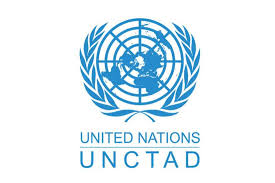The United Nations Conference on Trade and Development (UNCTAD) has raised concerns over the growing threats facing the global ocean economy, warning that rising climate impacts, unstable trade policies, and regional tensions could destabilise a sector valued at $2.2 trillion in 2023.
In its latest report released on Tuesday, the UN trade agency called for urgent reforms to protect ocean-based industries such as international shipping, marine tourism, fisheries, offshore energy, and port services, which play a major role in supporting food supply, energy access, and global trade.
According to UNCTAD, the ocean economy contributed about $900 billion in goods and $1.3 trillion in services in 2023, with coastal and maritime tourism leading the way. The tourism sector alone accounted for $725 billion, making it the single biggest contributor to ocean-based revenue.
Other major segments included freight transport, shipbuilding, port equipment, and emerging sectors such as renewable ocean energy and marine biotechnology. These industries, according to the report, are facing rising risks from environmental shocks, uncertain trade routes, and a lack of coordinated global regulation.
The report also noted that changes in shipping patterns caused by climate-related events such as droughts, heatwaves, and floods are already affecting the movement of goods. This has led to longer travel distances, higher fuel costs, and more greenhouse gas emissions. These challenges, it said, are already being felt in key global waterways such as the Panama Canal and the Suez Canal, both of which have faced disruptions due to low water levels and security issues.
The UN trade body warned that the situation may become worse in 2025 unless governments, shipping companies, port operators, and tourism businesses begin to work together to improve infrastructure, regulate emissions, and protect vulnerable economies, especially Small Island Developing States (SIDS) and Least Developed Countries (LDCs), many of which rely heavily on the ocean for their survival.
UNCTAD Secretary-General, Rebeca Grynspan, said the world cannot afford to ignore the threats facing the ocean economy. She urged countries to take “bold, inclusive and climate-resilient” steps to safeguard one of the most vital pillars of international trade and development.
“Shipping delays, climate disruptions, and policy uncertainty are undermining the reliability of global supply chains,” she said. “These disruptions hurt the economies that are already struggling the most – small island nations and poorer countries with little capacity to adapt.”
The report pointed out that in addition to climate change, geopolitical tensions such as the Red Sea crisis and trade conflicts between major economies like the United States and China are adding to the stress. As vessels reroute to avoid dangerous regions, shipping costs rise, carbon emissions go up, and delivery times increase, creating a knock-on effect across the entire global economy.
It further stated that outdated port infrastructure, weak environmental regulations, and a slow transition to clean energy in the maritime sector are compounding the problem.
UNCTAD urged countries to invest in cleaner and more efficient port operations, digital shipping solutions, and green energy technologies like offshore wind, wave energy, and cleaner fuels such as green ammonia and hydrogen.
It also recommended stronger collaboration between regional trade blocs such as the African Continental Free Trade Area (AfCFTA), the European Union (EU), and ASEAN to streamline ocean governance and make trade routes more stable and predictable.
Nigeria, being a major player in West Africa’s maritime economy, is expected to feel the impact of these developments. With growing investments in the blue economy through the Nigerian Ports Authority (NPA), Nigerian Maritime Administration and Safety Agency (NIMASA), and the Ministry of Marine and Blue Economy, experts say now is the time to build resilience and adopt greener shipping policies.
UNCTAD’s report also highlighted the need for better financing for countries at risk. It urged international financial institutions to support ocean climate adaptation projects, including early warning systems, coastal protection, and clean shipping technology.
As the world moves toward decarbonisation, the agency stressed that the shipping industry must align with the 2050 net-zero targets, noting that emissions from maritime transport account for nearly 3% of global greenhouse gases.
The report ended by calling on countries to include ocean-based industries in their climate action plans and economic recovery strategies. It also encouraged private sector players to join in by embracing sustainability and innovation in marine operations.
Industry watchers and environmental groups in Nigeria have echoed UNCTAD’s warnings, stating that improved ocean governance is essential not only for trade but also for protecting livelihoods in coastal communities across the Niger Delta, Lagos, and riverine parts of the country.
With Nigeria’s coastline stretching over 850 kilometers and hosting several ports including Apapa, Tin Can Island, Onne, and Calabar, the country’s maritime future could benefit greatly from climate-smart investments and international cooperation.
